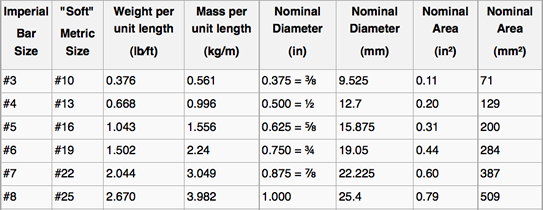Rebar Tensile Strength Chart: Grade 40 vs 60 vs 75 (PSI Guide)
Rebar steel (reinforcing bar) is the backbone of concrete construction. But when engineers calculate load capacities, they don't guess—they look for specific numbers. One of the most common questions we get is: "What is the tensile strength of rebar?"
If you are looking for a quick answer or a rebar tensile strength chart, you are in the right place. Below, we break down the critical differences between Grade 40, Grade 60, and high-strength options.

Quick Reference: Rebar Tensile Strength Chart
The "Grade" of rebar designates its minimum yield strength. Here is the standard ASTM data used in the US:
| Rebar Grade | Min. Yield Strength (PSI) | Min. Tensile Strength (PSI) |
|---|---|---|
| Grade 40 | 40,000 psi | 60,000 psi |
| Grade 60 (Standard) | 60,000 psi | 90,000 psi |
| Grade 75 | 75,000 psi | 100,000 psi |
| Grade 100 | 100,000 psi | 115,000 psi |
What is Grade 60 Rebar?
You will notice that Grade 60 rebar is the most common type used in modern commercial and residential construction. But what do the numbers mean?
- Yield Strength (60,000 PSI): The stress level where the rebar starts to deform permanently. It won't snap back to its original shape after this point.
- Tensile Strength (90,000 PSI): The maximum stress the material can withstand while being stretched before it breaks completely.
Because of this balance, Grade 60 is the industry standard for foundations, retaining walls, and bridges.
The Hidden Weakness of Steel: Corrosion
While steel rebar offers excellent strength, it has one major enemy: Rust.
No matter how high the tensile strength is (even Grade 100), once saltwater or moisture penetrates the concrete, steel expands and cracks the structure (spalling). This is why many engineers are switching materials.
Have you considered Fiberglass Rebar?
For projects near water or in corrosive environments, Fiberglass Rebar (GFRP) is becoming the preferred choice. Interestingly, fiberglass often has a higher tensile strength than steel (up to 2x stronger), yet it is lighter and never rusts.
Testing Methods (ASTM A370)
To ensure rebar meets these standards, manufacturers perform a "Tensile Test." A sample of the rebar is placed in a hydraulic machine that pulls it from both ends until it breaks. The machine records:
- The point where it stretches (Yield).
- The maximum force applied (Tensile).
- The total elongation (Ductility).
Conclusion
Understanding rebar grades is crucial for safety. For most standard projects, Grade 60 is your go-to material offering 90,000 psi of ultimate tensile strength.
However, if you are looking for high strength without the risk of corrosion, you should compare prices with our fiberglass options.
Need a quote for bulk reinforcement materials?

